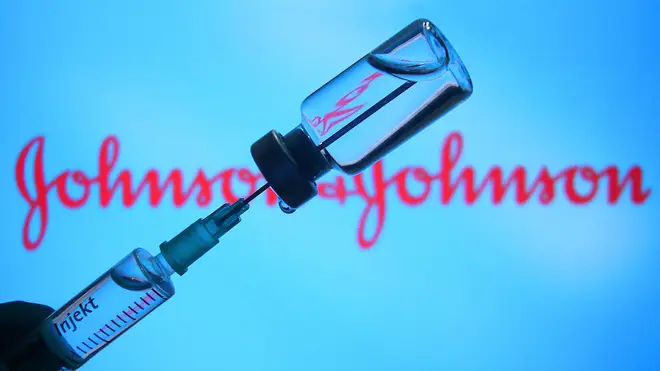
Clive Bull 1am - 4am
24 April 2021, 00:37 | Updated: 24 April 2021, 01:07

A US health panel has said the Johnson & Johnson Covid-19 vaccine rollout should resume, despite the risk of very rare blood clots.
Nearly eight million people were vaccinated in the US before the jab was suspended, with health officials uncovering 15 cases of a highly unusual kind of blood clot, three of them fatal.
All were women, most younger than 50.
READ MORE: US recommends pause to Johnson & Johnson Covid jab rollout over blood clot reports
READ MORE: EMA finds 'possible link' between Johnson & Johnson vaccine and rare blood clots
Advisers to the Centres for Disease Control and Prevention (CDC) said, while the rollout should resume, it is critical younger women are told about the risk in clear, understandable terms so they can decide if they would prefer an alternative vaccine.
The panel voted 10-4 to lift an 11-day pause but said warnings should be added that women and health workers would see in leaflets at vaccination clinics.
Dr Sarah Long, of Drexel University College of Medicine, voted against the proposal because she felt it did not go far enough in warning women.
She said: "This is an age group that is most at risk (of the clotting) that is getting vaccine predominately to save other peoples' lives and morbidity, not their own. And I think we have a responsibility to be certain that they know this."
The CDC and Food and Drug Administration usually follows the recommendation of its advisers and CDC Director Dr Rochelle Walensky has promised to act quickly.

Pfizer, Moderna and AstraZeneca: The Coronavirus Vaccines Explained
European regulators made a similar decision earlier this week, saying the benefits of the J&J vaccine outweigh the risks.
The clots raised alarm because European regulators have uncovered similar rare cases among recipients of the AstraZeneca vaccine.
The AstraZeneca and J&J vaccines, while not identical, are made with the same technology.
Two-dose vaccines from Pfizer and Moderna, which are made differently and have not been linked to clots, are the main jabs being used in the US vaccination rollout.
But many states had been counting on the one dose J&J option to help protect hard-to-reach populations including people who are homeless or disabled.